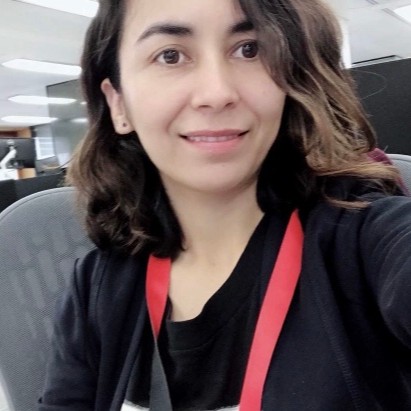Though machine learning approaches have shown great success in estimating properties of small molecules, the inverse problem of generating molecules with desired properties remains challenging. This difficulty is in part because the set of molecules that have a given property is structurally very diverse. Treating this inverse problem as a conditional distribution estimation task, we draw upon work in learning disentangled representations to learn a conditional distribution over molecules given a desired property, where the molecular structure is encoded in a continuous latent random variable. By including property information as an input factor independent from the structure representation, one can perform conditional molecule generation via a “style transfer” process, in which we explicitly set the property to a desired value at generation time.

